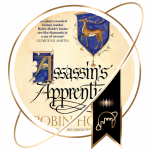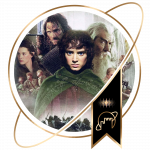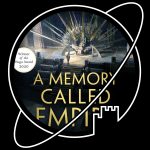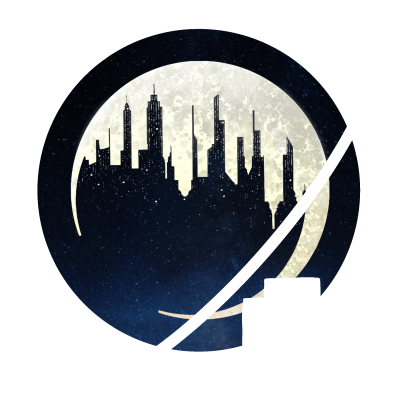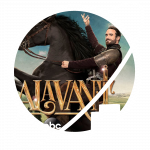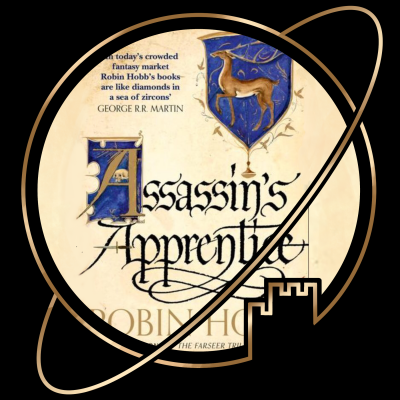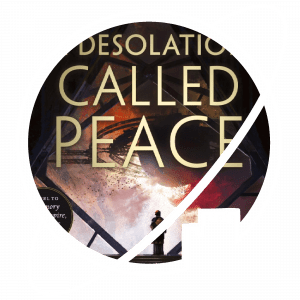Welcome to the Escape Velocity Collection!
We are an opinionated group of friends reviewing all sorts of fantasy and science fiction media. Don’t forget to get to know the curators and visit our curated Collection, where we discuss the stories that never cease to transport us to another world.
Will you escape with us?
LATEST POSTS:
Time to get to know the curators from the Escape Velocity Collection! How? By asking them the questions that really matter! Let’s see what our curators have to say…
This week’s question is:
Who is your favourite mentor character from Fantasy or Science Fiction media?
The ‘Mentor Character’ is one of my favourite tropes, so this was not an easy choice for me. In the end, I settled on Elodin from Patrick Rothfuss’s Kingkiller Chronicles. What I like about Elodin is that he is kind of a wild card. He is not the comforting old mentor who you can count on to know what is best and to make wise decisions. Instead, he is chaotic, undependable, and at times quite an ass. However, it is clear that there is much more ‘method to his madness’ than Kvothe gives him credit for. Above all, I just think he is very funny and the scenes in which he features are some of my favourite parts of the books.
This might be a case of recency bias, but I just read A Memory Called Empire and I loved the way Martine wrote Yskandr Aghavn as a mentor character. There were so many interesting twists to the way the trope was played! Some spoilers below.
Firstly, I liked that Yskandr wasn’t a separate character, but rather a force that taught Mahit from inside herself. Second, I loved that after the set up making the reader expect him to play a typical mentor role, he disappeared when Mahit needed him most – leaving her all alone in the hands of Three Seagrass, who was an equal more than a mentor. And to top it all off, when Yskandr finally returns, Mahit has already completed her journey and no longer needs him the way she did. What a beautiful way to subvert a common trope!
Jawbone O’Shaughnessey. If you’ve watched Dimension 20’s Fantasy High, you’ll know Jawbone was once a washed up, drug-dealing werewolf. He’s a wolf of the world, baby! No one knows what it’s like to go through it more than him, which is what makes him such an amazing guidance counselor. What I like most about Jawbone is what he represents: He’s not a huge character when he is first introduced. He’s just some random werewolf without health insurance the Bad Kids meet in a bar brawl. Still, they gave him a chance (albeit mostly jokingly) by telling him that their high school was looking for a guidance counselor, and because of that one conversation, he suddenly became quite a major character in the story, essentially acting as a father figure to Adaine, Kristin and Fig. It shows us that the people who help us grow the most in life are often not the ones we expect to do so.
I thought long and hard and then came to the conclusion that I actually don’t really like the concept of mentor characters? Instead, I prefer characters who have to figure everything out themselves. The ones who defiantly go off and do their own thing. Bonus points when those things go horribly wrong the first time and they have to overcome their own struggles, becoming wiser in the progress. To me, this is a much more interesting narrative than some other character guiding them to do the right thing. So I guess my favourite mentor characters are protagonists that are their own mentor character. Roald Dahl’s Mathilda is the first that comes to mind. I love how she finds her courage by going her own way.
I would say The Lord of the Rings’ Gandalf, at least as he is portrayed by Sir Ian McKellen in Peter Jackson’s movies.
At first glance, this might seem somewhat of a boring opinion. In many ways, Gandalf is the mentor archetype from which most other mentor characters are derived: a wise, old wizard, who eventually ‘dies’ to allow the development of the other characters. However, most of these Gandalf knockoffs miss Gandalf’s depth. Yes, he is old and wise, but at the same time he’s never quite certain of his own deeds and counsel. At times he makes mistakes. He lacks confidence – and sometimes even hope – but strives to do his best anyway and help others do the same.
Gandalf is imperfect but therefore human. And that is precisely why he is a great mentor.
Man, I had a hard time thinking of a good one, but I think I have thought of a nice duo: Burrich in the Farseer Trilogy of Robin Hobb and Hagrid in the Harry Potter series of J.K. Rowling. They are goodhearted men who (reluctantly) watch over two children who have no other adults to take that role. As Fitz and Harry grow older, their relationship with their ‘fosterfathers’ changes. The older men marvel at the personal growth of the young ones, try to protect them, get angry when they do something stupid, argue to tears, make up and become friends. Although I must say, the relationship between Burrich and Fitz has pulled my heartstrings more (read: is more painful) than that between Harry and Hagrid.
That’s it: another soul-searching question answered!
Still curious? Visit each curator’s page to see what they’ve recently been up to!
Check out our reviews of the media recommended in this post here:
- Movie directed by Hayao Miyazaki
- Based on Howl's Moving Castle by Diana Wynne Jones
- Voiced by Jean Simmons, Emily Mortimer, Lauren Bacall, Christian Bale, Josh Hutcherson, Billy Crystal
- Released 20 November 2004
- Runtime: 119 minutes
Set against the backdrop of a destructive war, this is the story of young hatmaker Sophie, who is cursed by an evil witch to look like an old woman. Being unable to speak of her curse because the magic forbids it, she finds work in the home of a mysterious wizard in the hope that he will someday be able to lift the spell.


I think that this movie is generally well loved and many may find three and a half stars to be an injustice. Howl’s Moving Castle is one of those pieces of media, however, where a single star rating isn’t representative of a more complex opinion.
The visuals of this movie are an easy five out of five, as are most of Studio Ghibli’s works. Especially the backgrounds of the cities and landscapes paint such a beautiful picture of the world that you want to live in it despite the ongoing war. The actual moving castle is also beautifully designed, to the extent that it almost becomes a character itself. The movie is full of breathtaking shots and iconic imagery and worth watching for that alone.
The trouble is in the latter half of the story. I have to admit that, to my shame, I did not read the book first. But as a result, I could not make sense of the final maybe half an hour of the movie. There are no blantant plot holes or anything along those lines. The story just becomes… a hazy blur from scene to scene. There is a long string of emotional beats, ups and downs, highs and lows… but I walked away wondering how all of that magic worked and I still don’t quite understand how the story resolved in the end. Perhaps it is telling that the 4th Google search suggestion for ‘Howl’s Moving Castle’ is ‘Howl’s Moving Castle explained’.
So Howl’s Moving Castle is a bit of a mixed bag for me. As an animated feature, it looks absolutely amazing. Gorgeous. As a story, it falls flat. If I could rate them separately, the movie’d probably get 5 stars for it’s looks, 2 for its plot. On average, that’s about 3.5 – a solid recommendation, but not necessarily from the top shelf. Really, whether or not you should watch this movie is entirely up to what you are looking for. Just want to sit back, relax, and enjoy the view? Great, go ahead! Want to get wrapped up in a cool story of magic and war? Eh, maybe there are better candidates out there.

I was super late to the game on Howl’s Moving Castle. Like, well past the theme music being the soundtrack to EVERY cottage core video on the internet ever. You know how some things are super popular but you just can’t be bothered to check them out? Yeah. Guilty as charged.
I love this movie. I’ll be honest, it’s mostly aesthetics for me. Some movies just make you feel something.
Studio Ghibli’s Howl’s Moving Castle is based on the book by Diana Wynne Jones. When I was a kid, I read a lot of her novels. My dad would go to the library and just bring me a stack of books, and I’d read them all in time for him to go back and bring me a new stack. I don’t remember much about the actual stories, but I definitely remember the feeling of being transported to a different world – something I also feel very strongly while watching this movie.
While I agree with Peter on the story being confusing, I do think that not every story has to make sense. These days, a lot of stories get bogged down with unnecessary explanations of, for instance, how the magic system and the world work. There’s a whole bunch of people who love poking holes in stories just because they leave a couple of things to the imagination.
So sure, the story gets a little confusing at times, still I’m incredibly glad that the cottage core kids cyber bullied me into finally watching this film.
See also:
- Dungeons and Dragons actual play webseries
- Produced by Dimension 20 for Dropout.tv
- Released in 2019
- DM'd by Brennan Lee Mulligan
- Starring Ally Beardsley, Emily Axford, Zac Oyama, Lou Wilson, Brian Murphy and Siobhan Thompson
New York, New York! In this Dungeons and Dragons webseries by Dimension 20, the city that never sleeps is home to more than just cockroaches and rats. In the Unsleeping City, magical creatures abound, hidden from view of average New Yorkers. The story follows a small group, some of them new to the magic of the city, and others long familiar with it. Watch as they navigate the usual troubles found in New York, as well as some… less average troubles.

(This review relates only to the first season)
The Unsleeping City is the third Dimension 20 D&D show I watched, so I knew pretty much what to expect. Still, while the comradery at the table is the same as it was in Fantasy High, The Unsleeping City offers a vastly different experience. This show is urban fantasy at its finest.
The Unsleeping City is very much a love letter to New York. Now I’ve never been to New York, and I’m not hugely impressed by what I’ve heard about it so far. Still, it’s clear that the cast is very familiar with the city, and they love it. There’s definitely things that went over my head (like why no one ever wanted to go to Sofia’s home in Staten Island – because you have to take the ferry to get there), but they don’t detract from the experience, because there’s so much else going on. The Unsleeping City shows us many sides of New York, and Dungeon Master Brennan Lee Mulligan sprinkles some magic into each location in a way that’s almost like magic in itself.
Every time when I review something from Dimension 20, I want to highlight players who’ve really made me laugh (or cry). The problem with this is that it’s basically impossible to pick individual people, as the entire cast really is phenomenal.
Now I wasn’t joking before, The Unsleeping City has made me cry multiple times. Sure, the show is largely comedy, but boy do these people know how to tell a story.

If you’ve read my review of Fantasy High, you will know that I am not generally a huge fan of the “Let’s play D&D and upload our session to the internet”-type content. Even so, Fantasy High was surprisingly watchable, so I gave Dimension 20 another shot with The Unsleeping City.
Like Fantasy High, The Unsleeping City offers a more condensed experience than most similar content. Brennan Lee Mulligan is an excellent DM and he has designed the campaign to have as little dead time as possible. In effect, it feels like all we’re watching is a highlight reel – which in and of itself is an inspirational way to go about a TTRPG campaign. It also a huge improvement on the genre’s usual flaws.
The Unsleeping City is unfortunately still not a particularly dense format. Especially combat sequences – even if every battle is an awesome set piece – still drag. They just drag a lot less than usual.
All the above is really commentary on the nature of the D&D-playing-show-genre, which perhaps goes to show that The Unsleeping City’s format, more than anything else, is a determining factor for (and… an impediment to?) my enjoyment.
The world of The Unsleeping City is really cool, reminding me more than anything of Neil Gaiman’s Neverwhere: both set up a fairy tale mythology of a modern metropolis (for New York and London respectively), based on history, geography, puns, and urban legend. The players have come up with an original, often hilarious, and occasionally heart breaking cast of characters. The twisting main plot is a bit tough to follow at times, but it doesn’t really matter, because the personal stories of the player characters are the emotional core of the show – and they are really well done and satisfying.
As before, I would probably have loved The Unsleeping City more as something like an improv audio drama with all the unnecessary dice rolling and rules babbling taken out. As fun as a high or low roll at a crucial juncture can be, there are few things as immersion-breaking as stopping to roll midway through an emotional sequence.
In short: these people tell a great story, but perhaps they shouldn’t lean on the crutch of D&D to make it work.
Tagged:
Lotte
Check out our reviews of the media recommended in this post here:
Unless you’ve been living under a rock, you’ll know that Fantasy is highly in demand right now. No doubt influenced by the success of Game of Thrones, there’s a lot of grimdark fantasy out there these days. If, like Peter, that’s your cup of tea, you may want to take a look at our grimdark tag to see what we’ve reviewed. However, in today’s recommendation, we wanted to highlight some of the more light-hearted fantasy content we’ve come across. If you’re the kind of fantasy lover who’s more into the works of Terry Pratchett than George R. R. Martin, we reckon you’ll love the following suggestions!
Fantasy High
First on my list, there’s Fantasy High. Led by Brennan Lee Mulligan, this Dungeons and Dragons live stream is a delightful blend of classic fantasy tropes, and an all-American high school setting. One moment they’re fighting monsters, the next they’re helping a Werewolf drug dealer find a job as a guidance councilor at their school. The cast is a group of professional improv comedy actors, and unlike most other D&D streams, this is actually a set of pre-recorded, edited sessions, which means that the story flows easily without interruptions to discuss the rules. The full first season is available for free on Youtube, and I cannot recommend it enough.
Galavant
Second on my list is ABC’s musical comedy series, Galavant. Galavant is the story of a tragic hero who loses the love of his life to the ruthless king Richard. His quest to save her from the king doesn’t exactly go swimmingly. While the whole series takes place in a very traditional medieval European setting, there’s lots of modern jokes sprinkled throughout that are very much reminiscent of something Pratchett might write. The writers are not afraid to break the fourth wall every now and then, and it actually works because the show as a whole doesn’t take itself too seriously. Be sure to look out for the impressive range of guest stars while watching!
Merlin
Finally, I have to give a little shoutout to BBC’s Merlin. Merlin is an excellent example of a high fantasy setting where the stakes are clear, but the writers don’t feel the need to rub it in your face. While the show has an overarching plot, the episodes are often written to function well as stand-alone stories. The main focus is the friendship between Merlin and Arthur, and it’s a friendship that relies mostly on teasing and banter. If you haven’t seen Merlin yet, you should definitely give it a try!
Hopefully this list has given you some suggestions you weren’t yet familiar with! If you do watch any of these shows, let us know what you thought of it on one of our social media channels.
- TV show created by Kwang Il Han, Beau DeMayo and Lauren Schmidt Hissrich for Netflix
- Based on The Witcher by Andrzej Sapkowski
- Voiced by Theo James, Lara Pulver, Graham McTavish, Mary McDonnell
- Released August 23, 2021
- Runtime: 83 minutes
We all know the story of the White Wolf, Geralt of Rivia, a witcher, a mutant who dedicates his life to monster-slaying. This story, however, follows the life of a young Vesemir, Geralt’s mentor, long before the events of The Witcher series.
As strange variants of monsters start to terrorize the forest of Ard Carraigh, Vesemir is tasked to investigate their origins. Meanwhile, in political spheres the following question arises: is there still a need for witchers in the world?
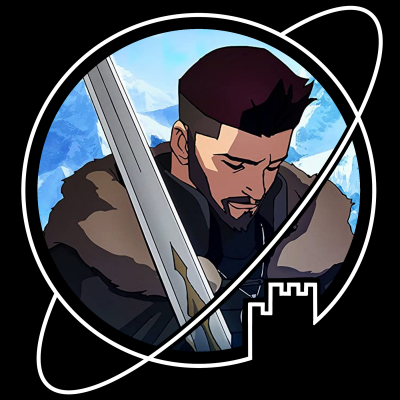

Though I’m ashamed to admit I have yet to read any of the Witcher’s source materials – the books written by Andrzej Sapkowski – I’m a big enough fan of the universe that I didn’t hesitate to watch this movie on its release day. I was not disappointed (that is, only in the fact that this is a movie, and not an animation series, as I first believed).
First, I’d like to mention the animation pleasantly reminded me of Avatar: The Last Airbender, be it a little more grimdark. After doing some research, I discovered it’s actually the studio behind The Legend of Korra (Studio Mir) that did the animation for this movie, so I was not far off the mark. Be that as it may, the style is smooth and pleasant to look at, even the more gorey bits, which I usually find hard to stomach. The action scenes were impressive (perhaps a little over the top in comparison with the games or series, but suitable for the medium).
The plot contained many of the elements one might expect of a story set in the Witcher-universe: dubious politics and gray moralities. For those familiar with the world, many of these aspects will be familiar, though I can imagine others might find them overwhelming or confusing. This movie takes little time to elaborate these matters, and some plot twists are messily executed. Still, it’s impressive how much depth they managed to include in only 83 minutes.
As for the characters, they remain relatively flat. Even Vesemir barely outgrows the archetype of the loveable rogue throughout the movie. However, the characters serve the story well enough.
I would recommend The Witcher: The Nightmare of the Wolf to every Witcher fan in need of some new content.
See also:
Tagged:
- Book written by Robin Hobb
- Published in 1995
- Part 1 of the Farseer Trilogy
- First part of the Realm of the Elderlings Series
As the illegitimate son of the Crown Prince, young Fitz holds a difficult position in the royal court of the Kingdom of the Six Dutchies. He is not publicly acknowledged by his family and so he grows up as a stableboy, while in secret his grandfather King Shrewd has him trained to become an assassin. At the same time, he has to learn to handle the hereditary magic that is part of his bloodline. Threats to the Kingdom, both from outside of its borders and from within, will force Fitz to consider where his true loyalties lie.

When the concept of the Collection was presented to me, I didn’t have any doubts that Robin Hobb’s The Farseer Trilogy would be one of my first contributions. To clarify: I really love these books.
I can still remember the first time I picked up Assassin’s Apprentice. Only ten or eleven years old, recently lured into the fantasy genre by The Fellowship of the Ring movie, I was on a desperate quest in the library to find books to read. It was John Howe’s beautiful yet mysterious cover artwork that first caught my eye: a ship traversing a stormy sea, and a few character portraits. The blurb told me Robin Hobb(it) was heavily inspired by J.R.R. Tolkien. I was sold…
When I started reading, it soon became clear Assassin’s Apprentice was nothing like Tolkien’s stories, but I didn’t care in the slightest. By then, I was already gripped by the desperate setting Robin Hobb presented to me, and I was invested in little Fitz’s struggles to find his way in this harsh world of strange magics and murky moralities.
As the title suggests, Assassin’s Apprentice tells the story of a boy that is groomed as an assassin. However, the plot has more in store than that, despite this book’s relatively concise length. You follow Fitz, a crown prince’s bastard, as he weathers childhood insecurities as well as court politics in a time of cruel invasions. Through Fitz’ eyes, Robin Hobb craftily guides you through an intriguing series of events, a plot with several twists and turns, to leave you with an excellently satisfying ending that at the same time will let you long for more. I will never forget the first time I finished this book, and the delightful jumble of emotions it had unleashed in me.
Finally, I’d like to mention the fact that Assassin’s Apprentice (and its sequels) harbors some extraordinary, lifelike characters, characters you’ll learn to love or hate. I would personally count Fitz, the sole protagonist, as one of the loveable characters.
Luckily, I can confirm that my passion for this book (and trilogy) is based on more than just mere nostalgia. I’ve reread it multiple times in the decennia since then, and I’ve only discovered more things to love. For me, that is an indicator of truly masterful writing, something I gladly recommend to other readers.

I’m about to get into a fight with a bunch of the other curators on this site, but there’s no putting it off anymore: Let’s talk about Robin Hobb.
I’ve read seven of her books, and by now I’m well and truly of the opinion that her writing amounts to a resounding ‘meh’. There are some ups, a lot of downs, and overall her books are just… middle of the road fantasy books about main characters that annoy the [expletive] out of me.
Assassin’s Apprentice is actually one of Hobb’s books that I enjoyed the most out of the ones I have read. The book produces a beautiful little vingette of a keep on a cliff by the shore and the little fishing village around it, of the lives of the people living there, of a child’s adventures on the beach or by the docks. It tells a great story of a kid from elsewhere, struggling to fit into a new world in which he never seems to fully be accepted, of the few relationships he builds (and destroys…) over the course of his teenage years, and the bonds of duty that bind him to his fate.
But boy, did the book also annoy me at times. I have two main peeves with The Realm of the Elderlings, and as the Farseer Trilogy progresses, they will both stand out more and more. The first is that Hobb’s worldbuilding, while not lacking in detail, is both a bit bland and lacking in coherence. She has a tendency to cram a bunch of quite different tropes into the same world – or even the same kingdom – without much care for how they would affect one another (at least in the first six books of the series). It is not much worse than in many other fantasy books, but given that many consider her one of the great ones, it irks me.
The second, far more important problem is that I absolutely loathe Fitz, the main character. Boy, do I not love Fitz. Hobb is one of those writers who chooses to write about main characters that make an almost unrelenting string of mistakes and continually suffer as a result of their own stupidity, stubbornness, or sheer bad luck (Rothfuss is another one of those). Fitz plods through the plot in constant anxiety, self-hate and borderline depression, and as a reader you keep clenching your teeth at how much easier everything in his life could have been if only he could see straight for a second. It makes me – and many people I know – want to throw things.
I have found that there are others who love torturing themselves like this.
You’ll probably know in which of those categories you fall. Do you like characters in constant struggle with themselves and the world who keep on the face of endless adversity? Then go ahead, you’ll like this! Are you a sucker for competent characters with a fatal flaw? Then Assassin’s Apprentice is maybe not for you.
Assassin’s Apprentice is divisive and it is not my style, but I’ll recognise that it is well-written and for some fantasy readers, it is the absolute holy grail. So if you’re in doubt, I’d recommend you give it a go and see if its for you. But if Fitz is not your thing… well, it’ll be one of those that you’ve read to see what the fuss was all about.
If you’re interested in more fireworks, perhaps check out our collection post, where I try to convince a couple of die-hard fans to say something less than positive about their favourite series.

Robin Hobb’s Realm of the Elderling series is one of my favourite Fantasy series of all time, so it is hard for me to judge this first books on its own merits without considering where the story will go in the following books. A lot of what makes the series so great to me is the way you get to follow these characters throughout their lifetime and to see them change from little children to adults, to become parents and even grandparents in time.
In this first book, we meet Fitz when he is just five years old. We are introduced to a lot of great characters who will play an important role in his life. The first book is by far the shortest of the series, and it is relatively fast paced. If you are into epic fantasy I would say: give it a try. If you like what you are reading, there is a lot more to look forward to…
For a more extensive review of this series, read in our Collection Post why Jop and I think it deserves to be added to the collection.
Tagged:

Curator Question: Mentor Characters
Our curators discuss some of their favourite Mentor characters from Science Fiction and Fantasy media.

Review: Howl’s Moving Castle – Hayao Miyazaki
Young hatmaker Sophie is cursed by an evil witch, and, being unable to speak of her curse because of the magic, finds work in the home of a mysterious wizard in the hope that he will someday be able to lift the spell.
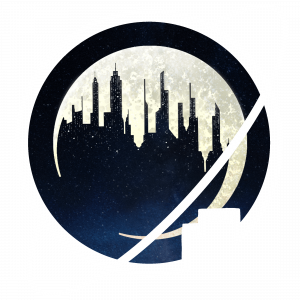
Review: The Unsleeping City – Dimension 20
In this Dungeons and Dragons webseries by Dimension 20, the city that never sleeps is home to more than just cockroaches and rats. In the Unsleeping City, magical creatures abound, hidden from view of average New Yorkers. The story follows a small group of people who can see the magical elements of the city, and the conflicts that arise because of them.

Recommendation: Light-hearted Fantasy (for lovers of Terry Pratchett)
Looking for some light-hearted fantasy? See what our curator Lotte recommends!
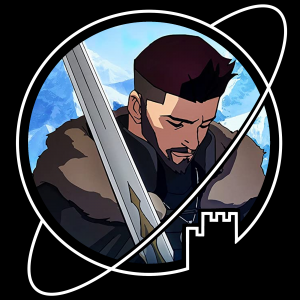
Review: The Witcher: Nightmare of the Wolf – Netflix
As strange variants of monsters start to terrorize the forest of Ard Carraigh, the witcher Vesemir is tasked to investigate their origins. Meanwhile, in political spheres the following question arises: is there still a need for monster hunters in the world?
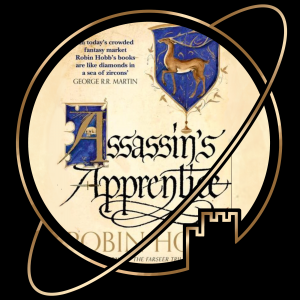
Review: Assassin’s Apprentice – Robin Hobb
Part one of the Farseer Trilogy. As the illegitimate son of the Crown Prince, young Fitz holds a difficult position in the royal court of the Kingdom of the Six Dutchies. He is not publicly acknowledged by his family and so he grows up as a stableboy, while in secret his grandfather King Shrewd has him trained to become an assassin. At the same time, he has to learn to handle the hereditary magic that is part of his bloodline. Threats to the Kingdom, both from outside of its borders and from within, will force Fitz to consider where his true loyalties lie.










